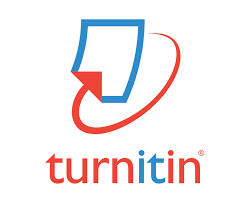Plagiarism Policy
Plagiarism Policy for Journal of Genius Health and Pharmaceutical Research (JGHPR)
Journal of Genius Health and Pharmaceutical Research (JGHPR) is committed to maintaining the highest standards of integrity and originality in scholarly publishing. Plagiarism is a serious ethical violation that undermines the credibility of research and the integrity of the academic community. This policy outlines the journal's stance on plagiarism and the actions that will be taken in cases of suspected or confirmed plagiarism.
Definition of Plagiarism:
Plagiarism is the act of presenting someone else's work, ideas, or intellectual property as one's own, without proper acknowledgment or permission. This includes, but is not limited to, copying and pasting text, paraphrasing without proper citation, and reproducing figures, tables, or other content without permission.
Plagiarism Detection:
JGHPR employs plagiarism detection tools to screen submitted manuscripts for potential instances of plagiarism. Authors are encouraged to submit original work, and any detected instances of plagiarism will be thoroughly investigated.
Actions in Case of Suspected Plagiarism:
Preliminary Investigation: Upon detecting potential plagiarism, the editorial team will conduct a preliminary investigation to assess the extent and severity of the plagiarism.
Author Notification: If plagiarism is suspected, the corresponding author will be contacted to provide an explanation. Authors are given an opportunity to clarify the situation and respond to the concerns raised.
Independent Review: In cases where plagiarism is confirmed or if the author's explanation is deemed unsatisfactory, the editorial team may seek input from independent experts to assess the severity of the plagiarism and recommend appropriate actions.
Corrective Actions: Depending on the severity of the plagiarism, corrective actions may include rejection of the manuscript, a formal retraction if the paper has been published, and communication with the authors' institutions and relevant authorities.
Editorial Decision: The final decision on how to address plagiarism cases rests with the Editor-in-Chief and the editorial team. This decision is made in accordance with the severity of the plagiarism and the journal's commitment to upholding ethical standards.
Prevention: Authors are strongly encouraged to familiarize themselves with proper citation practices and ethical writing standards. Prior to submission, authors should ensure that their work is entirely original, and all sources are appropriately cited.
Appeals: Authors have the right to appeal editorial decisions related to plagiarism. Appeals should be submitted in writing, outlining the reasons for the appeal, and will be reviewed by the editorial team.
JGHPR is dedicated to fostering a culture of academic integrity and ethical research practices. All stakeholders, including authors, reviewers, and editors, are expected to adhere to these principles to ensure the highest standards in scholarly publishing.


